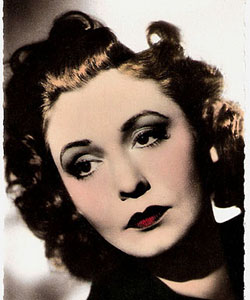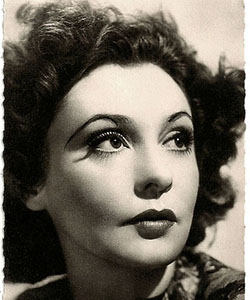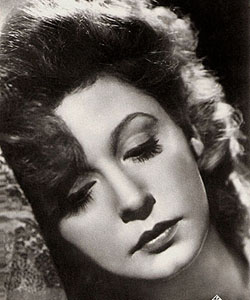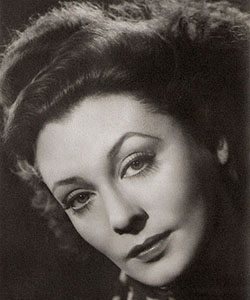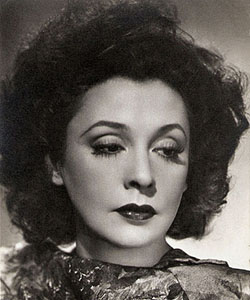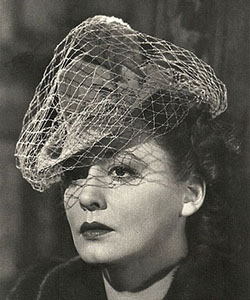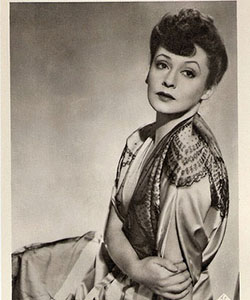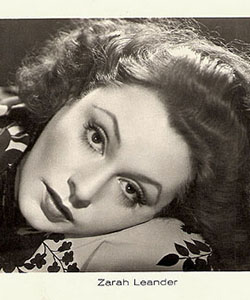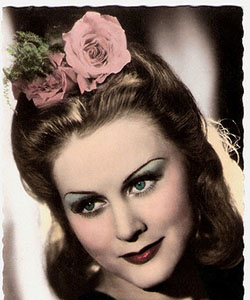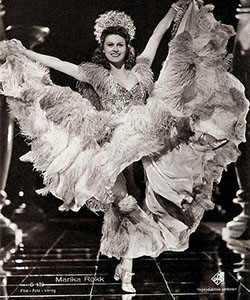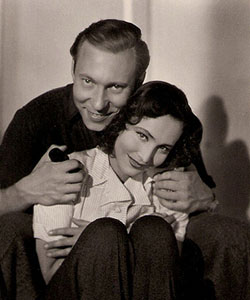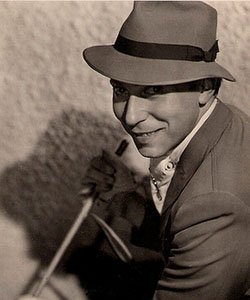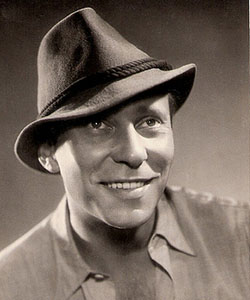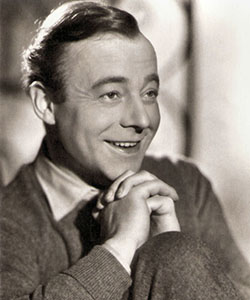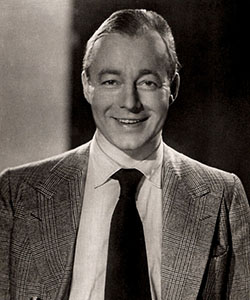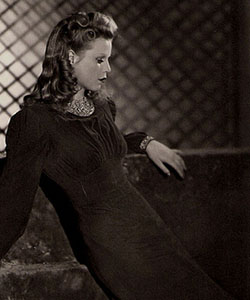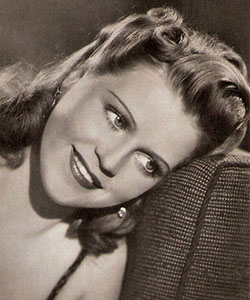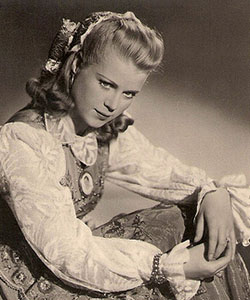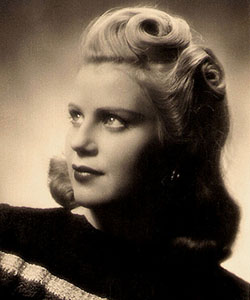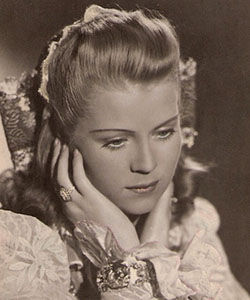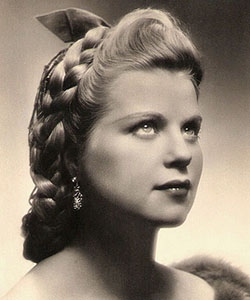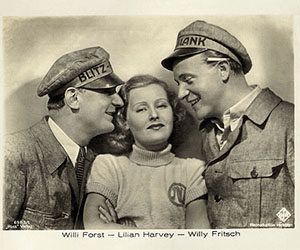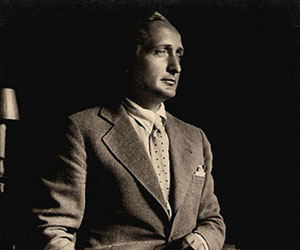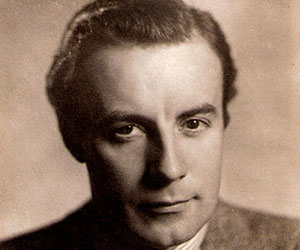Kinematografie ve válčící Evropě 1939–1945
Filozofická fakulta Masarykovy univerzity
Populární kultura, žánrový film a filmové hvězdy
Povinná četba
O´Brien, Mary-Elizabeth: Nazi Cinema as Enchantment: The Politics of Entertainment in the Third Reich.Rochester – Suffolk: Camden House, 2004, s. 161–206
Přístupné pouze studentům kurzu
Literatura
- Bonnell, Andrew G.: Melodrama for the Master Race: Two Films by Detlef Sierck (Douglas Sirk). Film History 10, 1998, č. 2, s. 208–218
- Fox, jo: Filming Women in the Third Reich. London – New Delhi – New York – Sydney: Bloomsbury, 2000
- Hake, Sabine: Popular Cinema of the Third Reich. Austin: University of Texas Press, 2001
- Heins, Laura: Nazi Film Melodrama. Urbana – Chicago – Springfield: University of Illinois Press, 2013
- Kreimeier, Klaus: Od Heny Portenové k Zarah Leanderové. Filmové žánry a žánrový film v době výmarské republiky a za nacismu. Film a doba 1–2, 1996, s. 20–25
- Lowry, Stephen: Movie Reception and Popular Culture in the Third Reich. Contextualization of Cinematic Meanings in Everyday Life. In: Imbert Schenk – Margrit Tröhler – Yvonne Zimmermann (eds.): Film – Cinema – Spectator: Film Reception. Marburg: Schüren, 2010, s. 213–227
- Lowry, Stephen: Der Ort meiner Träume? Zur ideologischen Funktion der NS-Unterhaltungsfilm. Montage/AV, 3/2/1994, s. 55–72
- Lowry, Stephen: Heinz Rühmann – The Archetypal German. In: Tim Bergfelder – Erica Carter – Deniz Göktürk (eds.), The German Cinema Book. London: BFI, 2002, s. 81–89
- O´Brien, Mary-Elizabeth: Nazi Cinema as Enchantment: The Politics of Entertainment in the Third Reich. Rochester – Suffolk: Camden House, 2004
- Rentschler, Eric: The Ministry of Illusion: Nazi Cinema and Its Afterlife. Harvard: Harvard University Press, 1996
- Ross, Corey: Radio, Film and Morale: Wartime Entertainment between Mobilization and Distraction. In: Pamela E. Sweet – Corey Ross – Fabrice d´Almeida (eds.), Pleasure and Power in Nazi Germany. Basingstoke: Palgrave, 2011, s. 154–174
- Witte, Karsten: Visual Pleasure Inhibited: Aspects of the German Revue Film. New German Critique 24/25, 1981/82, s. 238–263
Obrazový materiál
Zarah Leander
Marika Rökk
Carl Raddatz
Heinz Rühmann
Kristina Söderbaum
Willi Forst, Lilian Harvey, Willy Fritsch
Hans Albers
Johannes Heesters
Videa
Příběhy slavných – Lída Baarová; 18.00, 24.30(Vladimír Just, Stanislav Motl, Pavel Taussig) Hitlerovy ženy: Magda Goebbels
(26.45 min. – Lída Baarová) Das Leben kann so schön sein
(Rolf Hansen, 1938) Dobrodružství barona Prášila
(Münchhausen; Josef von Báky, 1943) Májová bowle
(Die Feuerzangenbowle; Helmut Weiss, 1944) Dvojí život krásného Karla
(Die Umwege des schönen Karl; Carl Fröhlich, 1938) La Habanera
(Detlef Sierck, 1937) Tenkrát
(Damals; Rolf Hansen, 1943) Její oběť
(Opfergang; Veit Harlan, 1944) Žena mých snů
(Die Frau meiner Träume; Georg Jacoby, 1944) Robert a Bertram
(Robert und Bertram; Hans A. Zerlett, 1939) Kaučuk
(Kautschuk; Eduard von Borsody, 1938)
Kontrolní otázky
- Kolik vzniklo v nacistickém Německu hraných filmů, kolik z nich bylo otevřeně politických, jaké žánry byly nejvíce zastoupené?
- Jakou sociální funkci a ideologickou roli mohly zábavní žánrové filmy mít?
- Jaký typ hvězdy představoval Heinz Rühmann, jaké narativní motivy se v jeho filmech nejčastěji objevovaly?
- Jaké jsou stylistické, narativní a ideologické rysy německého revuálního filmu?
- Jak je reprezentována žena v melodramatu nacistického období, jak tyto strategie reprezentace souvisejí s dobovými sociálními a politickými preferencemi?
